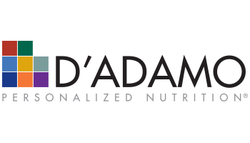
May is Celiac Awareness Month. It’s a month dedicated to education, awareness and advocacy for a disease that affects two million people in the United States and about 1% of people in the world. *
At D’Adamo Personalized Nutrition, we are frequently asked about celiac disease and The Blood Type Diet®. Specifically, many of our readers want to know if they can follow The Blood Type Diet if they have celiac disease. The short answer is “yes,” but there is more to know. To start, let’s take a closer look at the disease itself.
What is celiac disease?
Celiac disease is a serious autoimmune disease with a genetic component. For people with celiac disease, eating gluten triggers the body’s immune system to mistakenly attack the small intestine. The resulting damage prevents absorption of nutrients from food and can lead to very serious complications that can affect not only the digestive system but also the brain, the skin and the reproductive system.
Celiac disease can cause uncomfortable symptoms that include abdominal pain, chronic diarrhea, constipation and nausea, but it’s important to know that some people have no symptoms at all. Currently, the only treatment for celiac disease is a strict, gluten-free diet. Even the smallest amount of gluten can be harmful, meaning people with celiac disease must also be careful not to eat foods that may have been contaminated with gluten during food preparation or service.
Genetics and celiac disease
It is well known that celiac disease has a strong genetic component. In fact, the prevalence of celiac disease is 1 in 22 for those who have a parent, child or sibling who also have the condition. **
Many people wonder if certain blood types are more prone to celiac disease, but actually celiac disease seems to affect all blood types about equally. There is, however, a strong association between being a non-secretor and having celiac disease.
A non-secretor is someone who carries a gene which inhibits them from secreting their ABO blood type antigens in secretions such as saliva. Only 20% of the population are non-secretors. Non-secretors, though, are 200 times more likely to have celiac disease than secretors. ***
Can I follow The Blood Type Diet if I have celiac disease?
For people with celiac disease, it is possible to follow The Blood Type Diet, however it is not a substitute for a gluten-free diet. Even when a gluten-containing food is Beneficial for your blood type, if you have celiac disease, it must be avoided. For example, for Blood Type A secretors, barley malt is Beneficial and rye flour is Neutral. For Type A non-secretors, both barley malt and rye flour are Neutral. But since barley malt and rye flour contain gluten, those with celiac disease must avoid them, regardless of their Blood Type. Think of it as gluten-free first, Blood Type Diet second.
If you have celiac disease and want to follow The Blood Type Diet, the food recommendations and meal planning tools, such as the Official Blood Type Diet App, can only be used as guidelines. You will need to continue to be diligent about avoiding even the smallest amounts of wheat, barley, rye and gluten-containing oats.
It’s true that having celiac disease can feel very restrictive in terms of food choices. You might be asking, “why would I want to restrict my diet even further?” The answer is that following The Blood Type Diet can improve your overall health and wellness. When your body functions efficiently, you’re not only healthier, but you also feel better. You may even find that The Blood Type Diet is not as restrictive as you think. While some modifications may be necessary, there are many highly Beneficial foods for every blood type that are naturally gluten-free.
How to get started
A great way for anyone to get started with The Blood Type Diet is to power up on Beneficials. Choose five Beneficial foods for your individual blood type and eat more of them. If you have celiac disease, you will need to make sure that the foods you choose are also gluten-free. Then, select five Avoid foods for your blood type and eliminate them from your diet.
If you have celiac disease, you probably already spend a lot of time and effort on food shopping and meal planning. You may be surprised to find that incorporating The Blood Type Diet is actually easier for you than for others who are not already accustomed to thinking carefully about what they eat.
To learn more about The Blood Type Diet and to find out which foods are Beneficial for your specific blood type (remembering that there may be gluten-containing foods listed that you will need to avoid), the best place to start is the Eat Right 4 Your Type book. Based on years of research, Dr. Peter D’Adamo’s bestselling book contains easy-to-understand explanations and everything you need to know to build a personalized nutrition plan based on your individual blood type.
For more information specific to celiac disease and The Blood Type Diet, Dr. D'Adamo's Eat Right 4 Your Type Complete Blood Type Encyclopedia is a valuable resource. This A-Z reference provides extensive information on the blood type connections to symptoms, diseases, conditions, vitamins, supplements and more.
* https://www.niddk.nih.gov/health-information/digestive-diseases/celiac-disease/definition-facts#common
** https://nationalceliac.org/celiac-disease-questions/is-celiac-disease-hereditary/
*** Dr. Peter J. D'Adamo, Eat Right 4 Your Type (2016 revised and updated edition), page 296.


